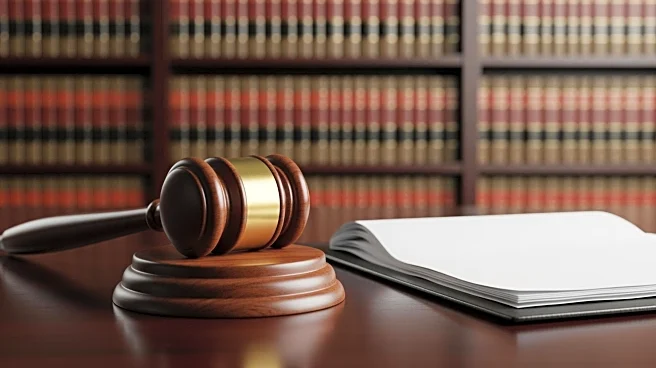What's Happening?
Peter Skandalakis, head of the Georgia Prosecuting Attorneys’ Council, has appointed himself as the prosecutor in the Georgia election interference case against President Donald Trump. This decision follows
the disqualification of Fulton County District Attorney Fani Willis due to a conflict of interest. Skandalakis faced a court-imposed deadline to appoint a prosecutor, and after failing to secure another candidate, he decided to take on the role himself. He emphasized the importance of transparency and fairness in handling the case, which has been of significant public interest since its initiation in January 2021. The case involves allegations of racketeering against Trump and others, including Rudy Giuliani and Mark Meadows, for conspiring to overturn Georgia’s 2020 election results.
Why It's Important?
The appointment of Peter Skandalakis as prosecutor in this high-profile case underscores the challenges in finding a willing and impartial prosecutor due to the political sensitivity surrounding the allegations. The case is closely watched as it involves significant figures in U.S. politics and addresses the integrity of the electoral process. The outcome could have implications for public trust in the legal system and electoral integrity. President Trump's legal team has expressed confidence that a fair review will lead to the dismissal of charges, highlighting the contentious nature of the proceedings.
What's Next?
With Skandalakis now leading the prosecution, the case is expected to proceed with a comprehensive review of the evidence. The public and legal observers will be watching closely for developments, as the case could set precedents for handling election-related legal challenges. The decision to appoint Skandalakis may also prompt reactions from political leaders and civil society groups concerned about the fairness and transparency of the legal process.
Beyond the Headlines
The disqualification of Fani Willis and the subsequent appointment of Skandalakis highlight the complexities and potential conflicts of interest in politically charged legal cases. This situation raises questions about the independence of the judiciary and the influence of political affiliations on legal proceedings. The case could have long-term implications for how similar cases are handled in the future, potentially affecting public perception of the justice system's impartiality.












